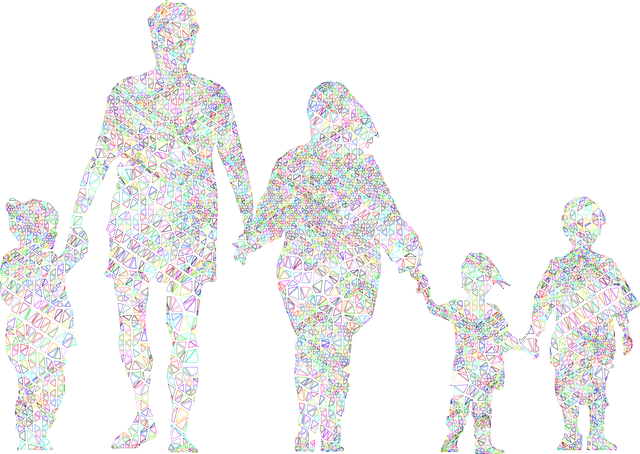Establishing paternity through legal means and DNA testing is vital for securing parental rights and defining parentage. A dedicated paternity lawyer ensures fair outcomes in disputes, aiding individuals in navigating complex family law, and facilitating amicable resolutions regarding child upbringing and future decisions. Prompt action prevents conflicts, enables fathers to engage in their children's lives, and promotes stable family dynamics by ensuring legal parentage.
“In a world where family structures are evolving, understanding and establishing paternity is more crucial than ever. This comprehensive guide delves into the intricate aspects of paternity acknowledgment, offering valuable insights for individuals navigating complex legal territories.
From defining legal parentage and the process of paternity testing to strategies for resolving disputes, this article equips readers with knowledge. It highlights the importance of protecting father’s rights and establishing legitimate parental legality, providing a go-to resource for those seeking guidance on paternity-related matters, courtesy of expert advice from a dedicated paternity lawyer.”
- Understanding Paternity: Defining Legal Parentage and Establishing Rights
- The Process of Paternity Testing: Uncovering Biological Parentage
- Navigating Paternity Disputes: Protecting Father’s Rights and Parental Legality
- Overcoming Challenges: Strategies for Successful Paternity Acknowledgment
Understanding Paternity: Defining Legal Parentage and Establishing Rights

Understanding Paternity is a crucial step in defining legal parentage and establishing rights for all involved parties. In many jurisdictions, legal parentage is determined by biological relationships confirmed through paternity testing. A paternity lawyer or paternity attorney can guide individuals through this process, ensuring their rights are protected. Establishing paternity grants parents legal standing to make important decisions regarding their child’s upbringing and future.
This process becomes particularly significant in paternity disputes where a child’s biological father steps forward to claim his parental rights or when there is uncertainty about the identity of a child’s parent(s). Paternity acknowledgment plays a vital role in solidifying relationships, providing stability for the child, and ensuring all legal protections are in place for their future well-being.
The Process of Paternity Testing: Uncovering Biological Parentage

Paternity testing is a crucial process that helps to establish biological parentage and is often a first step in addressing paternity disputes or acknowledging paternality. This involves scientific methods to determine if a man is the biological father of a child, using DNA analysis as the primary tool. A paternity lawyer or attorney can guide individuals through this legal aspect, ensuring their rights are protected throughout the process. The test typically requires a sample from the alleged father and the child, which is then compared to identify matching genetic markers, providing definitive evidence of parentage.
This scientific approach offers a clear verdict on parental rights and responsibilities, especially in cases where there’s a need to establish legal parentage or resolve paternity claims. It’s essential for both parents-to-be and children born out of wedlock to understand their legal standing and the rights associated with biological parentage, which can be facilitated by the insights of a qualified paternity attorney.
Navigating Paternity Disputes: Protecting Father’s Rights and Parental Legality

Navigating complex paternity disputes can be a challenging and emotional process for all involved. Establishing legal parentage is crucial to ensuring fathers’ rights are protected and their parental status is legally recognized. When determining biological parentage, paternity testing plays a pivotal role in providing concrete evidence to support a paternity claim. A skilled paternity lawyer can guide individuals through this intricate legal landscape, advocating for their rights and helping them establish legitimate parental legality.
Paternity acknowledgment is not just about legal documentation; it has profound implications for the entire family dynamic. Promptly addressing paternity disputes ensures that fathers can be actively involved in raising their children, fostering stable and healthy relationships. This process involves careful navigation of applicable paternity laws to ensure fair outcomes for all parties, especially when there are competing paternity claims or uncertain parentage situations.
Overcoming Challenges: Strategies for Successful Paternity Acknowledgment

Overcoming Challenges: Strategies for Successful Paternity Acknowledgment
Navigating a paternity acknowledgment process can be complex and emotionally charged, especially when disputes arise. One effective strategy is to engage the services of a dedicated paternity lawyer or paternity attorney. These legal professionals are well-versed in paternity laws and can guide individuals through the intricate procedures involved in establishing legal parentage. They can also help protect the rights of both the child and the potential father, ensuring that all aspects of the case are handled fairly and according to relevant paternity testing protocols.
Additionally, proactive communication is key. Open dialogue between all parties—including a paternity dispute resolution through mediation or collaborative law—can often prevent prolonged legal battles. Establishing clear lines of communication can facilitate an amicable agreement on parentage and parental rights, allowing for a more peaceful and efficient process. Moreover, being well-informed about one’s biological parentage and the legal implications can empower individuals to make informed decisions, ensuring a successful outcome in paternity acknowledgment.
Establishing paternity is a complex process that requires understanding legal parentage and the role of both parents in a child’s life. With the advancements in paternity testing, identifying biological parentage has become more accessible. However, disputes can arise, especially when fathers’ rights are at stake. Navigating these challenges with the help of a dedicated paternity lawyer ensures fairness and the protection of parental rights under existing paternity laws. Overcoming obstacles through strategic planning and legal expertise facilitates a successful paternity acknowledgment process.
